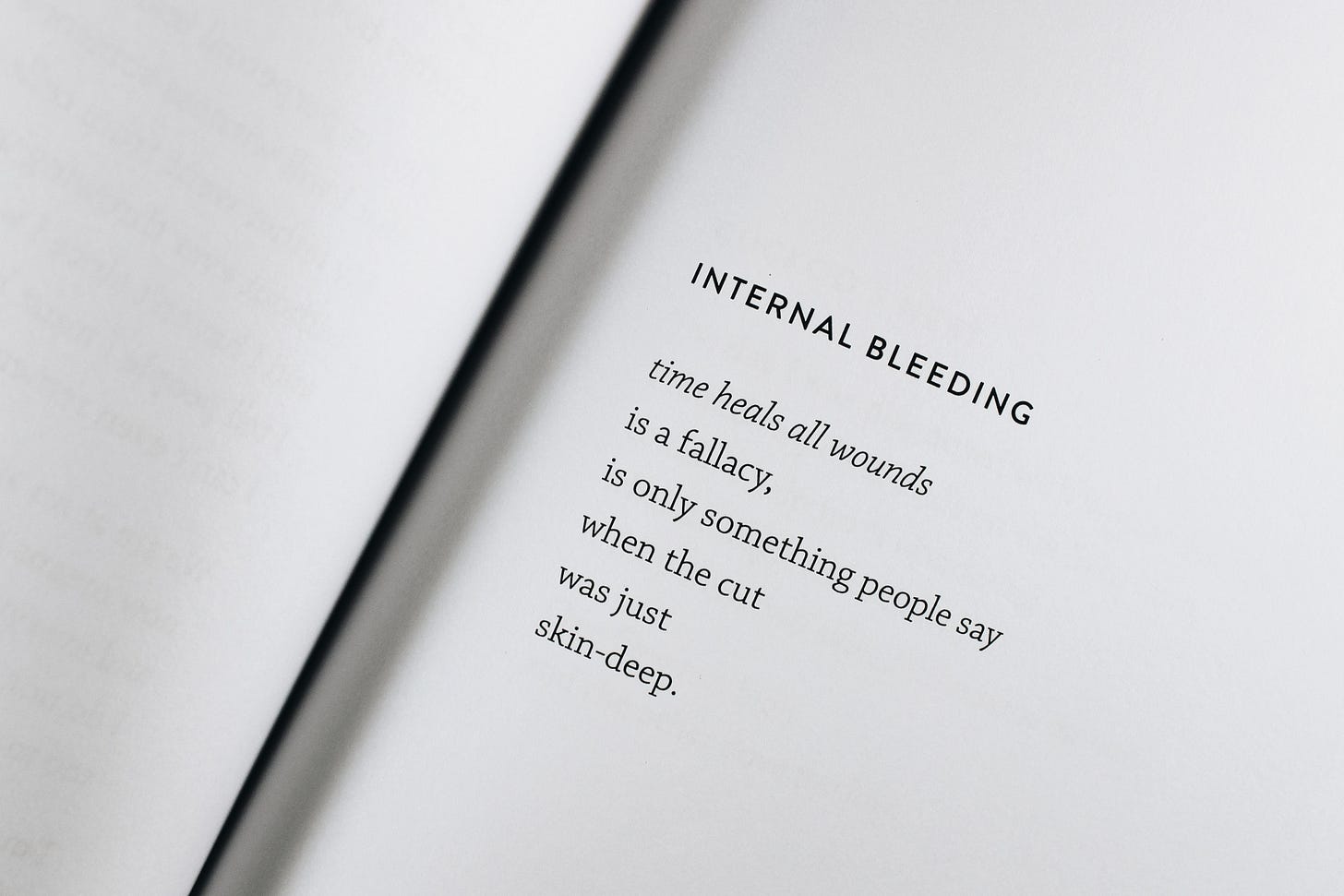Self-mastery Nº111
Heal yourself to heal others

Put on your oxygen mask before you help others put on theirs.
Many people see actions as a reliable way to read, judge or diagnose others—but often forget to do it for themselves, especially regarding stress or healing. Self-serving bias without any self-serve. If you’re like me, you probably have a lot of empathy for others. You care about their feelings, problems, and struggles—yet tend to dismiss your own. But how well do we really know how to heal if we don’t know how to do it ourselves?
I’ve always sacrificed a part of myself to make space for others. I’ve been doing this for as long as I can remember. It probably comes from the desire to be liked and avoid conflict. But instead of making me happy, it’s like someone pierces a chain through your skin and pulls in whichever direction they’re heading, regardless of how much pain it brings you both.
Humans intrinsically want to help make people feel better and ease their pain. It’s in our nature as social creatures. We might feel guilty if we don’t do enough for others, put our needs before theirs, or don’t their corner when something goes against our values.
This is admirable and noble, of course. But it is also dangerous and self-defeating. Because if we don’t take care of ourselves first, it’s easy to feel frustrated with what we did after the fact. And again, if you’re like me, it has even exhausted you to the point that you feel burned out in your environment, or depressed, or worse. You lose your sense of self, your creativity, your purpose. You slowly become a shell of a person, a martyr, a victim.
It is not hyperbole. It is reality. History barely likes to keep a deep record of the people who sacrificed themselves for others and ended up miserable or dead. But there are still countless examples.
Even if you look closely at your own life—your family or friends—you likely won’t need to travel far to find a story about someone who gave up their dreams or passions for another’s sake and carried a wound from it for the majority of their life afterwards.
In other words: think of yourself. Not in the way that breeds narcissism or isolates your hard-earned values from the rest, but that recognises and respects your needs, feelings, desires and (most importantly) boundaries. Your actions and decisions should treat you with kindness, compassion, and generosity; they should nurture your growth and happiness without sacrificing a part of you to please others (often only for a short while).
I’ve been reading about longevity and how life speeds up as we get older lately. It’s refreshing to see a few people speak on the contrary. Because, as I thought, the reason time feels shorter now is we get settled into too much routine. When we’re young, life is magical. Everything is a new experience or challenge that lights us up and sparks our neurons like spectacular fireworks. But as we age, we become less open to change, doing or seeing new experiences. We want more of the same. Familiarity.
The same goes for our habits and how healing can be so hard for many people.
Emotional healing is one of the most critical factors in overall health and longevity. Living a long, happy, and sustainable life is not only about how physically fit and healthy we can be but how long we can sustain emotional and mental well-being. But people tend to want to control their healing but do it the wrong way: to suppress pain and force their emotions to go one way or the other. And, unsurprisingly, it can severely inhibit how well they heal.
Life is full of commonalities that can induce emotional damage: loss, divorce or break ups, job loss, abuse, and much more. Outside of these specific events, it’s probable you may experience intensifying or lingering and ostensibly unshakeable anger or sadness or anxiety. And deep-rooted habits that hinder us (negative self-talk, not rewarding ourselves for making a step forward but punishing ourselves for taking a step back, etc.) only add to the stress of pulling those roots from the ground.
So what can we do to heal ourselves better?
Practice self-compassion
Don’t go it alone
Sit through it
Don’t try to fix it all at once
If you’re ever struggling in this way, remember first and foremost that you are not broken. No one should beat themselves up for even putting others before themselves occasionally. Learning to heal is a journey, one we must sit through and take our time with. Our progress will never be linear, but the benefits we get tend to always be. There are likely more profound and deeper levels of emotional healing to be discovered in our lives, and we all have a long, quiet, even peaceful road ahead of us to build a strong core and outer layer of skin that is compliant enough to absorb stress but resilient enough to never let it take over.


